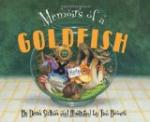At any rate, my bluff, easy, confident manner among my fellow men, which has played so important a part in my success, would be impossible. I could never patronize anybody if my necktie were frayed or my sleeves too short. I know that my clothes are as much a part of my entity as my hair, eyes and voice—more than any of the rest of me.
Based on the figures given above I am worth—the material part of me—as I step out of my front door to go forth to dinner, something over fifteen hundred dollars. If I were killed in a railroad accident all these things would be packed carefully in a box, inventoried, and given a much greater degree of attention than my mere body. I saw Napoleon’s boots and waistcoat the other day in Paris and I felt that he himself must be there in the glass case beside me.
Any one who at Abbotsford has felt of the white beaver hat of Sir Walter Scott knows that he has touched part—and a very considerable part—of Sir Walter. The hat, the boots, the waistcoat are far less ephemeral than the body they protect, and indicate almost as much of the wearer’s character as his hands and face. So I am not ashamed of my silk pajamas or of the geranium powder I throw in my bath. They are part of me.
But is this “me” limited to my body and my clothes? I drink a cup of coffee or a cocktail: after they are consumed they are part of me; are they not part of me as I hold the cup or the glass in my hand? Is my coat more characteristic of me than my house—my sleeve-links than my wife or my collie dog? I know a gentlewoman whose sensitive, quivering, aristocratic nature is expressed far more in the Russian wolfhound that shrinks always beside her than in the aloof, though charming, expression of her face. No; not only my body and my personal effects but everything that is mine is part of me—my chair with the rubbed arm; my book, with its marked pages; my office; my bank account, and in some measure my friend himself.
Let us agree that in the widest sense all that I have, feel or think is part of me—either of my physical or mental being; for surely my thoughts are more so than the books that suggest them, and my sensations of pleasure or satisfaction equally so with the dinner I have eaten or the cigar I have smoked. My ego is the sum total of all these things. And if the cigar is consumed, the dinner digested, the pleasure flown, the thought forgotten, the waistcoat or shirt discarded—so, too, do the tissues of the body dissolve, disintegrate and change. I can no more retain permanently the physical elements of my personality than I can the mental or spiritual.
What, then, am I—who, the Scriptures assert, am made in the image of God? Who and what is this being that has gradually been evolved during fifty years of life and which I call Myself? For whom my father and my mother, their fathers and mothers, and all my ancestors back through the gray mists of the forgotten past, struggled, starved, labored, suffered, and at last died. To what end did they do these things? To produce me? God forbid!




